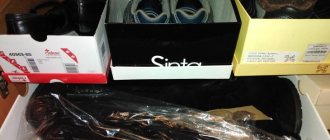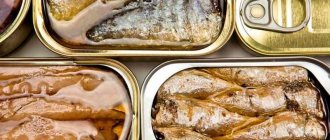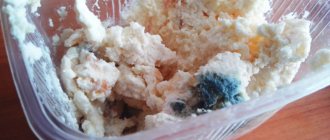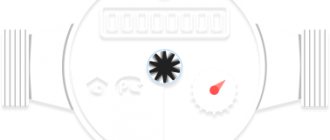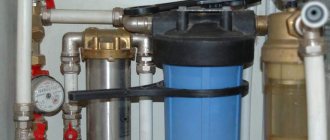Boiling kills all germs, which is why boiled water is considered safe for health by many. In addition, before brewing tea, the water has to be boiled in any case. The question arises: what to do with the remaining boiled water in the kettle? Can it be stored for later use?
Some housewives pour the remaining boiled water from the kettle into a jar and little by little use it for drinking. The good stuff shouldn’t go to waste; besides, electricity was wasted on boiling. And many people consider it irrational to simply pour boiled water into the sink. How correct is this approach?
Are there any expiration dates?
Boiled water, like any other water that is used for drinking and cooking, has strictly defined expiration dates.
This is due to the fact that heat treatment changes its structure and properties.
And although the boiling process itself kills dangerous microorganisms, boiled water is more susceptible to re-infection with viruses and bacteria.
Features of water
Water is a conductor of thermal energy and a reagent. It is capable of dissolving some substances. In living organisms, the substance helps regulate temperature, transports oxygen through cells, and serves as a lubricant. Thanks to these features, water is considered the most popular product.
For each industry (food, technology, medical) a certain type of liquid is used, which has been pre-treated and purified from harmful substances.
We list the common types of water:
- Distilled - suitable for medical, household and technical needs.
- Bottled - for daily human consumption.
- Mineral – used to treat certain diseases.
- Boiled – used for drinking.
Many consumers are interested in the shelf life of water. It is determined by the liquid storage conditions, composition and other features.
Can I use it after the expiration date?
After the expiration date of water, it is not allowed to be used for drinking or cooking. After boiling, it is able to absorb pathogens, viruses and bacteria from the air.
Use after long-term storage may cause:
- dyspepsia;
- diarrhea;
- intestinal infections.
Cool boiling water is considered the cleanest and healthiest - water immediately after boiling. As soon as it begins to cool, there is an increasing risk of infection by microorganisms. In order not to cause harm to health, it is necessary to throw out expired water and stock up on new water.
Important! It is not recommended to use boiled water for cooking after the expiration date, since repeated heating to 100°C increases the concentration of impurities, including heavy metals.
Distilled
To produce distilled water, special equipment is used - distillers.
The liquid is purified from various impurities - salts, gases and other substances. The output is crystal clear water, similar in composition to melted ice. The substance is an excellent solvent. Unlike ordinary tap water, it begins to boil at a higher temperature. It is used for technical and household needs. Most common uses:
- Caring for internal components of vehicles;
- Production of detergents;
- Air humidification using special devices;
- Ironing;
- Cleaning precision measuring instruments;
- Laboratory research;
- Production of medicines.
Distilled water is suitable for human consumption. For example, it is present in the Italian grape-based alcoholic drink (grappa). However, it is not suitable for daily drinking due to the lack of mineral salts and beneficial elements that play an important role in a complete human diet. It has been noticed that a low content of salts and other substances increases the likelihood of vascular and heart diseases.
Therefore, distilled water is much more often used for pharmacological and technical purposes. The production of liquid is regulated by the Russian state standard number 6709-72. If the water is used for pharmaceutical substances, the storage time is only 3 days after production.
After 3 days, the water oxidizes, which causes distortion of test results, deterioration in the quality of medications, etc. As for other areas of application, the duration of storage of the substance can be unlimited. The most suitable containers are plastic bottles, ceramic and glass vessels. It should be noted that when stored in tightly closed containers, the substance begins to smell musty over time. To avoid unpleasant consequences, calcium chloride tubes filled with lime from the inside are attached to the lid. Then cover with cotton wool.
How to store and for how long?
At home you can use:
- glassware (jugs, bottles, etc.);
- enamel dishes (kettles, pots, etc.);
- ceramic or clay containers;
- products made of high-quality heat-resistant plastic (polyethylene terephthalate), which are marked “PET”.
It is best to store water in glass bottles with a cork cap.
Basic Rules:
Storing water for more than a day is allowed, but provided the air temperature does not exceed 4-5°C.- If the room is hot, you need to change the boiling water more often - every few hours.
- The material from which the water container is made should not react with liquids when heated. For example, plastic containers without the “PET” mark will allow particles of the material to penetrate into the water, which will lead to its toxicity.
How long does boiled water last?
Freshly boiled water is good for brewing drinks. But as soon as it cools down, microorganisms begin to appear and accumulate in it.
The container in which the water is stored, as well as the ambient temperature, are of great importance. In the refrigerator, in glass or enamel-coated containers, water will not spoil longer than in a plastic container, especially in warm conditions. Anyway:
It is better to use boiled water within 1 day. The next morning, pour out the remaining from yesterday, collecting and boiling fresh.
Moreover, boiling water is not very difficult. But if you do not remove the remains of previously boiled water, sediment will gradually accumulate at the bottom.
It is better to pour out the remaining “old” water from the kettle for the same reason - so that sediment does not accumulate. In addition, repeated boiling negatively affects the composition of the water.
The more often you boil the same water, the worse it becomes. Each repeated boiling increases the concentration of harmful impurities.
Therefore, the healthiest water is considered to be just boiled water once, which is used for brewing tea and drinking tea. Because after heating to 100 degrees there are no microbes in it, and the content of harmful impurities is minimal.
In various institutions
According to SanPiN 2.4.2.2843-11 for educational and health care children's institutions (including preschool educational institutions), water must be stored in enamel kettles. At the same time, it is forbidden to heat it in pans and other dishes not intended for this purpose.
After boiling for a long time (from 5 minutes) in an electric heater, it is immediately placed in teapots, where it cools. SanPiN determines measures for storing boiled water only for children's institutions.
In other (“adult”) organizations, SanPiN 2.1.4.1116-02 applies. These rules apply to all types of drinking water:
- Storage no more than 24 hours.
- Air temperature from 5 to 20°C.
- Closed storage containers.
- Avoid exposure to direct sunlight.
Bottled
This type of water is bottled in plastic and sold through retail chains. Many organizations purchase packages of several dozen bottles. The container capacity varies widely - from 300 milliliters to 19 liters. In such vessels they sell water for various purposes - drinking, mineral, carbonated. There is water treated in a special way - deionized and distilled. Bottled water is almost always associated with a liquid intended for daily consumption.
Note! The product has different shelf life - 3, 6, 12, 24 months.
The exact expiration date is determined by the purpose of the product, the type of packaging, and the presence of artificial preservatives in the composition. Pure water, devoid of any impurities, is preserved for many years - that is, indefinitely. However, over time the taste may deteriorate. The main reason for this is the dishes. As you know, plastic used to make containers deteriorates over time. After the time specified by the manufacturer, the container begins to release various chemicals. They spoil the taste and make the contents dangerous for consumption. Bottled water can quickly deteriorate if storage conditions are not maintained. For example, if you leave the bottle in direct sunlight.
Many chain stores sell water in glass containers. The use of such vessels promotes long-term storage.
As for open water, devoid of packaging, the shelf life is 3-5 days, subject to temperature conditions. It is recommended to use the refrigerator compartment. After the specified period has expired, water can only be consumed after boiling. Thanks to heat treatment, pathogenic microorganisms that have managed to multiply in the liquid over the past few days die.
If the purchased water smells bad even if the listed storage rules are followed, it must be returned back to the store.
Rules and terms of water storage
How long the quality of water in 19 liter bottles remains depends on the storage rules for such containers. On average, this is 6-12 months from the moment of bottling (see the label). It is better to keep the container away from heating devices and direct rays of the sun. Water will retain its structure at room temperature and in diffused light.
What is the shelf life of 19 liter bottled water if the bottle is already opened? It is believed that the water should be used within 3-5 days. But it is unlikely that such a volume will be consumed quickly. It is advisable to place the container in a cool place and if a lot of time has passed, it will be safer to boil the remaining liquid.
For your information. We use high-quality food-grade plastic, which is marked PET (E). It is extruded on the bottle and it is worth paying attention to this moment. Unscrupulous manufacturers package water in toxic containers labeled PVC or containing methylamine.
Tap water
How long does tap water last in a plastic bottle? It is pre-filtered and poured into bottles. They are left open to allow the chlorine to evaporate. Then the containers are sealed and used indoors for 3 days, and in the refrigerator for about a week.
Boiled water
Sometimes water is boiled for future use and left in an enamel container with a closed lid. Under the influence of high temperatures, microorganisms, both beneficial and harmful, die. If there are a lot of salts in the liquid, they settle to the bottom. The shelf life of boiled water directly depends on its composition and quality.
If water is used for drinking, it is usually boiled in small quantities and consumed almost immediately. According to experts, the shelf life of cold boiled water is 12 hours.
Mineral water
It is difficult to answer the question of how long mineral water can be stored, since its composition and purpose are different, as are the containers used. On average, this period ranges from 3 to 18 months (plastic packaging) or 24 months (glass containers). Each type of mineral water has an expiration date, which the manufacturer indicates on the label.
Water with a mineral composition is stored under certain conditions:
- temperature regime +5-+20С,
- twilight ventilated place,
- lack of sun rays,
- in a horizontal position.
If the mineral water is opened, then the shelf life of the water is limited to 5 days. When the composition contains organic substances, it should be kept in the refrigerator and its use is limited to a week. If all requirements are met, the mineral composition will be preserved in full. And such water is not much different from the original - the source from which it was obtained.
Advice. If the information on the label indicates “expiration date,” then denaturation of the product has already occurred, in which the composition and quality of the mineral water have changed. This product must be returned to the store.
Well water
What are the benefits of springs? A crystal clear source of moisture, saturated with useful minerals, emerges from the ground. Usually it is collected in large containers. But the long shelf life of spring water in 19 liter plastic bottles is questionable.
The ideal container for it would be ceramic or glass containers. Metal canisters with a neutral coating inside are also suitable. Natural water remains useful for up to 3 years. It is important that the source is verified and reliable and actually contains that very clean, crystal water.
The expiration date of bottled water and the date of its bottling are indicated on the label. Try not to neglect this information and store water according to the rules. And although it refers to products that are practically not subject to spoilage, there are situations when the quality is questionable. And given that we are 80% water, its composition and structure affects the health of the body.
,You can store peeled walnuts at home for a long time in an airtight container even if, Meat is classified as a perishable product, and it can be stored for up to two years. Plants are designed to decorate human life, but they themselves are short-lived. How to make chrysanthemums

